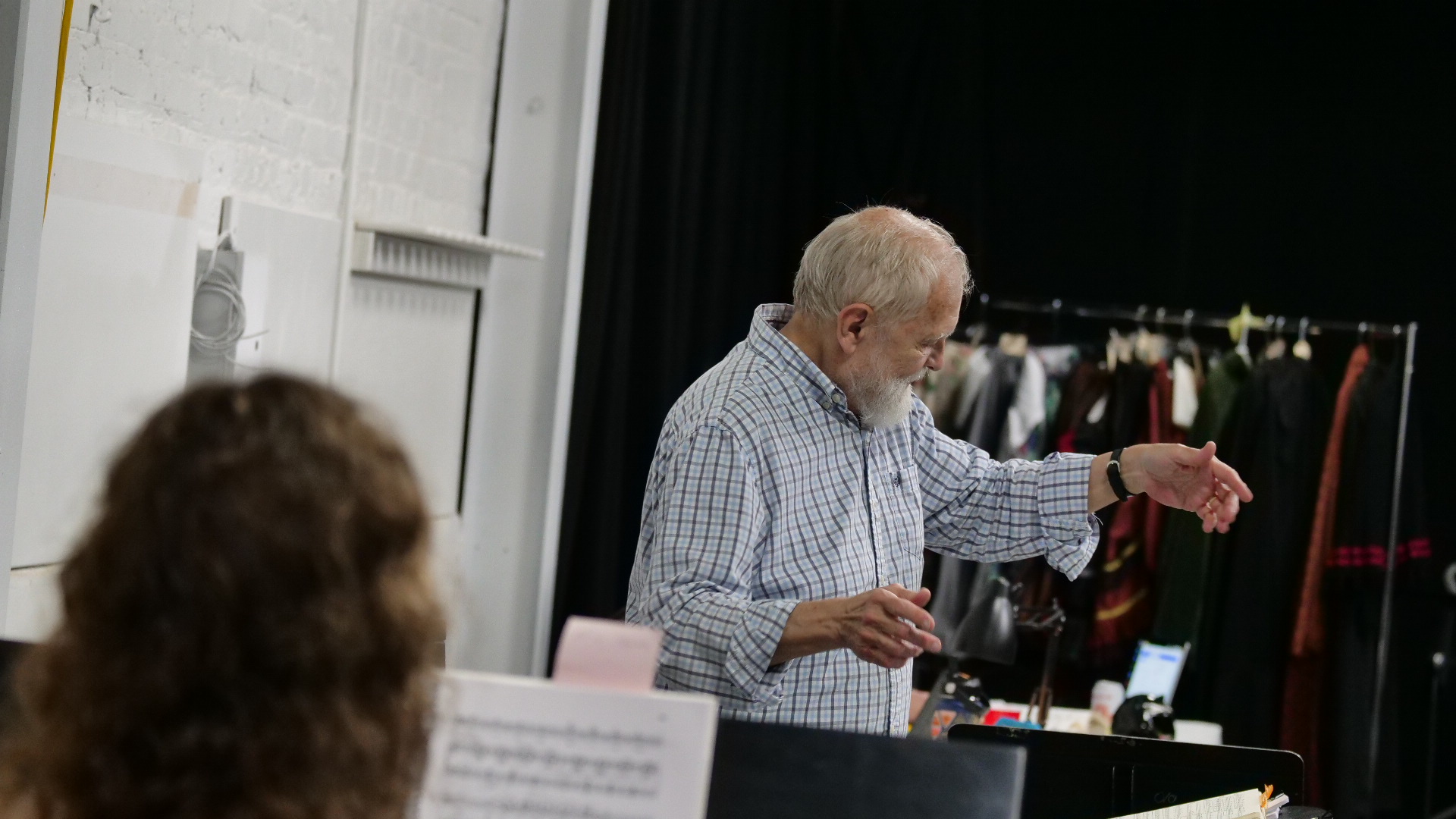
The Barber of Seville: From the Conductor
(To have this text read to you, or to translate it, select the blue accessibility icon at the bottom right of your screen.)
A SONG OF PRAISE AND THANKS TO THE MIDWEST
I am a Hoosier, an Indiana native, born in La Porte on the same latitude as Omaha, so I feel a magnetic connection there - I'm at home in Omaha. You have the mighty river; we have the Great Lake Michigan with Chicago shining on its banks. I want to praise and thank the great Midwest for the great musical education that led me to Rossini.
Rossini was born in Pesaro, on the Adriatic Sea, another magnificent body of water. His mother was an opera singer, his father a trumpeter, and they made certain their precocious son had a solid musical education. My Swedish grandfather played the trumpet, I followed in his footsteps, piano and organ lessons followed with masterful teachers. Just as Rossini’s childhood was dominated by the Napoleonic wars, our band marched regularly honoring veterans of WWII with marches often by Rossini, sometimes in elaborate choreographed football half-time shows. Rossini knew that "within rhythm lies all the power of music." Rossini has the beat!
A summer music camp brought me to legendary Indiana University, and I stayed for my bachelor’s degree. My first live opera was The Rake’s Progress, and I was hooked. With luck, I was assigned to the studio of incoming faculty member, piano virtuoso, Jorge Bolet. I had never heard anything like his stunning playing; my mind exploded. Through him, I met Beverly Sills who laughingly explained that they were friends because they performed the same repertoire: the 19th century virtuoso vocal repertoire that Liszt and others had transcribed for piano. Rossini is for virtuosos.
IU was famous for opera, and I, a new acolyte, played for many rehearsals and lessons in the studios of the brilliant teachers. Margaret Harshaw, a celebrated Wagnerian, had studied at Juilliard with Anna Schoen-Rene, who had studied with Pauline Viardot-Garcia whose father had created the role of the Count in Il barbiere di Siviglia. Music is a skill that is only learned by doing, and the passing down of technique and tradition; it was handed down to me, literally through the singers’ mouths. At IU, the musical world came to me. There was a quietly whispered dark nickname for IU: "The music school that Hitler founded," so many teachers were WWII refugees; all brilliant artists eager to pass on their valuable knowledge.
Glamorous Gianna d’Angelo, complete with Chanel suits and towering red hair, came to teach, and I was assigned to her studio. She had recorded Barbiere and that recording was my real introduction to these iconic characters. Her Barber on that recording, Renato Cappecchi, would later become a frequent colleague and friend completing another magical circle. No one other than Rossini could write an entrance aria like the Barber’s.
After Indiana, I traveled to Boston where my first professional job was with the Handel & Haydn Society; and I, like Rossini, developed a passion for earlier styles of music, and probably a bit of pretentiousness. It was always popular to belittle Rossini: "let’s leave the Rossini concert early, before we start to enjoy it!" But the truth is that everyone did enjoy it, a guilty pleasure, irresistible, one cannot help but enjoy Rossini. Rossini, with his martial, spirited rhythms and soaring virtuosic vocal lines, accomplished only by the greatest singers, and his roller coaster Rossini crescendos, inspires us, enlivens us, drags us along, exhausts us, and brings us joy. Resistance is futile!
Music is humans’ most primal language; Neanderthals communicated with song shapes before they spoke any language, it is deep in our DNA. Early music studies develop the brain in miraculous ways that support other skills: language, math, problem solving, physical coordination, emotional expression, and more. Participating in music, even as a listener, makes you healthier and happier—that’s science, not PR. Education in music for young children should be fundamental. Opera Omaha’s robust engagement programs, such as their Poetry & Music Project, and open dress rehearsals, bring in thousands of curious students every year, enriching their lives, changing their lives for better.
Thank you, Majestic Midwest, for your love and support of music and for introducing me to my friend and yours: Gioachino Rossini.
